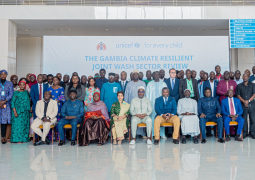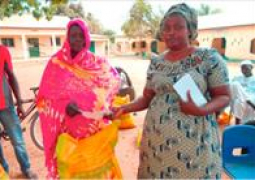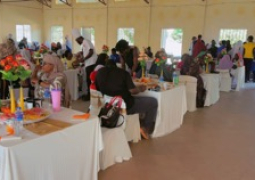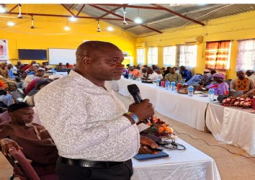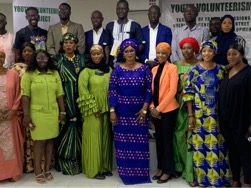
During the program, Isatou Njie, REFELA National Coordinator stated that the project was designed to benefit 500 youth in the capital city. She added that it is aimed at empowering young people with vocational skills, promote voluntarism and expand their horizons beyond The Gambia.
Over the course of five years she said, the project plans to annually offer 500 young individuals the opportunity to acquire skills needed for the job market, knowledge and personnel exchange travel to Europe, Asia, Scandinavia and Africa. Through these international experiences, participants will hone their vocational skills, paving the way for increased job prospects and a brighter future, she added.
Ms Njie added that consequently, 60 youth have been sent to training institutions such as University of Applied Science, Engineering and Technology (USET), SASS Health and Beauty, Ida’s Idea Fashion Institute, Gomindz Academy and Institute of Tourism and Travel to acquire lifetime skills with monthly stipends for transportation.
“The skills set for the first phase was Tailoring and Fashion Design, Computer Skills, Culinary Arts, Electrical Engineering, Auto mechanic, Construction and Travel and Tourism,” she said.
Modou Jonga, the chief executive officer (CEO) of Banjul City Council emphasised the pivotal role of youth engagement in driving positive societal transformation within the Banjul community and beyond.
He underscored the imperative for those selected to participate in the upcoming second phase to fully embrace ownership of the project. He articulated a clear vision, asserting that failure is not an option under his leadership. Encouraging a culture of accountability and commitment, he expressed confidence in the capacity of the youth volunteers to effect tangible change and inspire others through their actions.
Aziz Dabak Gaye, deputy mayor of Banjul City Council highlighted the exemplary role of the RAFELA Gambia Chapter, not only within The Gambia but also as a model for other countries.
He praised the project's inclusive nature, noting that beneficiaries hailed from various wards in Banjul, which he deemed a significant achievement for the city. Mr. Gaye underscored the far-reaching impact of the project, highlighting its ability to transcend geographical boundaries and serve as a beacon of inspiration for similar initiatives worldwide.


